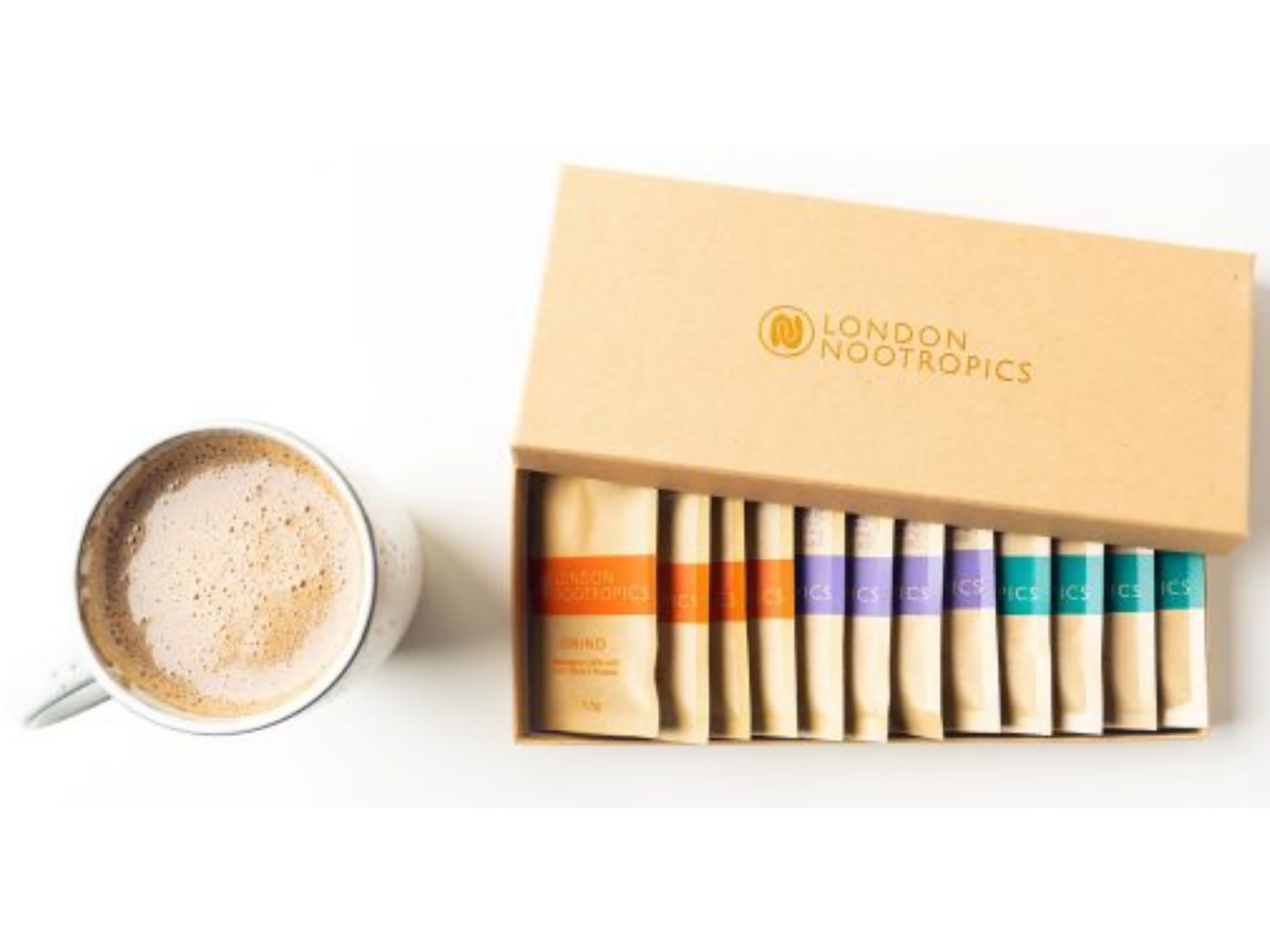Will an adaptogen a day keep the doctor away this winter?
Last year it was CBD, but this season the latest wellness buzzword is adaptogens – claiming to cure everything from anxiety to the common cold. Olivia Petter goes on her own ‘journey’ to see what difference they can make to her life


Another day, another trendy new kid on the woo woo block coming to spare us from stress, anxiety, and hormonal imbalances. At least, that’s the impression I’m getting from adaptogens that have been finding their way into powders, beauty products, cocktail recipes, and even celebrity-backed beverage brands recently.
Mainly derived from plants and herbs, adaptogens are vegan compounds that have been used in Chinese and Ayurvedic medicine for centuries. “Adaptogens have many functions but are most known for their role in helping the body resist stressors of all kinds, whether physical, chemical, or biological,” explains registered nutritional therapist Jen Walpole.
Often using herbs and roots, such as ashwagandha, holy basil and Rhodiola rosea, which improve the health of the adrenal system, they work by modulating the body’s stress response. Walpole explains this can in turn result in benefits to mood, sleep and immunity. “Some mushrooms are also considered adaptogenic, such as reishi and Cordyceps,” she says. The mushrooms work because they possess immunomodulatory qualities that regulate and balance the body’s natural immunity functions.
Indeed, friends have claimed that taking adaptogens every morning has stopped them from developing the nasty winter cold everyone seems to be getting right now. Some have even credited it to curing their period pain. Naturally, Gwyneth Paltrow was way ahead of the curve – Goop was talking about the “healing power of adaptogens” in 2016, claiming that they can promote “glowy skin and shinier hair”. Meanwhile, adaptogenic lattes have been on the menu at high-end vegan cafes, like Notting Hill’s Farmacy, for a while.
Bella Hadid also became a partner in Kin Euphorics, a nonalcoholic adaptogenic drinks company that promises to “use adaptogens and focus on brain health, while expanding our mind and calming our nervous system”. The model says the drinks help with her own chronic exhaustion and depression.
It’s a convincing sell, one that frames adaptogens as this season’s CBD. I should clarify the reason why, as a wellness sceptic, I’ve been seduced. Firstly, I’m an anxious person. So the idea of taking anything that might reduce my stress levels has major appeal, more so if it doesn’t involve any alcohol. CBD has worked in the past, but the best products are too expensive to buy all the time. And the oil, which I’ve found the most potent, runs out quickly. So it felt like a good time to try something new.

But there are so many products to choose from: powders added to smoothies, coffees to be imbibed first thing in the morning, skincare items that apparently allow adaptogens to be absorbed through your skin, there’s even an adaptogen lipstick. Ultimately, I decided to try London Nootropics, the adaptogenic coffee that my favourite podcast hosts (Straight Up’s Kathleen Johnson and Ellie Halls) credit with boosting their mental health and improving their energy levels.
Made from lion’s mane and cordyceps mushrooms, London Nootropics’ coffee comes in individual sachets you add to hot water. The idea is to take one first thing every morning before consuming anything else. “Along with the synergy between caffeine and adaptogens, mushroom coffee with a specific functional focus, such as our blends Flow and Mojo, can help us find our flow depending on our day and what our mind and body needs,” the brand’s website states.

So, after reading that this is the worst week for SAD (seasonal affective disorder), I made my coffee and waited for the magic to happen. It tasted disgusting, like some sort of powdered mud that had been sweetened with sugar. I tried adding milk – nope, still undrinkable. Then I tried a different type of milk (oat). No joy. Still, I stuck with the routine for a week because everyone tells me that it takes a few days to see a difference. Maybe it would boost my workout, as one friend said it would. Perhaps it would make me feel a little less anxious about everything currently going on in the world, as I hoped it might. Or maybe, it might just become a nicer, healthier alternative to my morning coffee.
Remember you can’t out-supplement a poor diet
Sadly, none of these things happened. In fact, I noticed no difference at all apart from a general malaise derived from the absence of my morning brew. And after my week of experimenting was up, I was relieved to ditch the ’shrooms and return to my regular, proper cup of coffee, anxiety and all. Did I do something wrong? Or do adaptogens not work for some people?
“Some notice a difference within days, but I advise clients to take adaptogens for at least four to six weeks to really notice a difference,” explains Walpole. “I always suggest starting with lifestyle changes first and then use adaptogens, so they have less of a reliance on taking a supplement versus making other significant changes.”

However, while she uses them regularly with clients who’ve seen benefits, there are cases when it’s hard to know what specifically has worked as, generally, other big lifestyle and dietary changes have been made alongside the addition of adaptogens. “If someone is taking them to help manage stress or support energy levels, they should consider working on lifestyle factors alongside adaptogens to really see the benefits,” she adds. “Remember you can’t out-supplement a poor diet, so consuming well-balanced meals, antioxidant-rich foods, green leafy veg, healthy fats and lean protein is key.”
And so lies the dilemma recently highlighted to me by a friend, who I was discussing my “adaptogen journey” with. “Taking something like that is only going to work if you’re doing all the other right things, too”, she said. “It’s not going to change your life if you’re still smoking and going out drinking booze three nights a week.” It’s an observation that I think the wellness industry could benefit from taking into account a lot more.
Because of course one product isn’t suddenly going to transform our mental and physical health. Wellness isn’t about taking one sachet of powdered fake coffee each morning. It’s about consistent, good-quality sleep. Eating a rich and balanced diet with minimal to no alcohol. And exercising when you can without injuring yourself. Trouble is, all that is harder to bottle that up and sell it to people. That’s not to say adaptogens are totally useless, but I know what’s really going to make the difference for me. And it’s certainly not a foul-tasting cup of coffee every morning.






Join our commenting forum
Join thought-provoking conversations, follow other Independent readers and see their replies
Comments